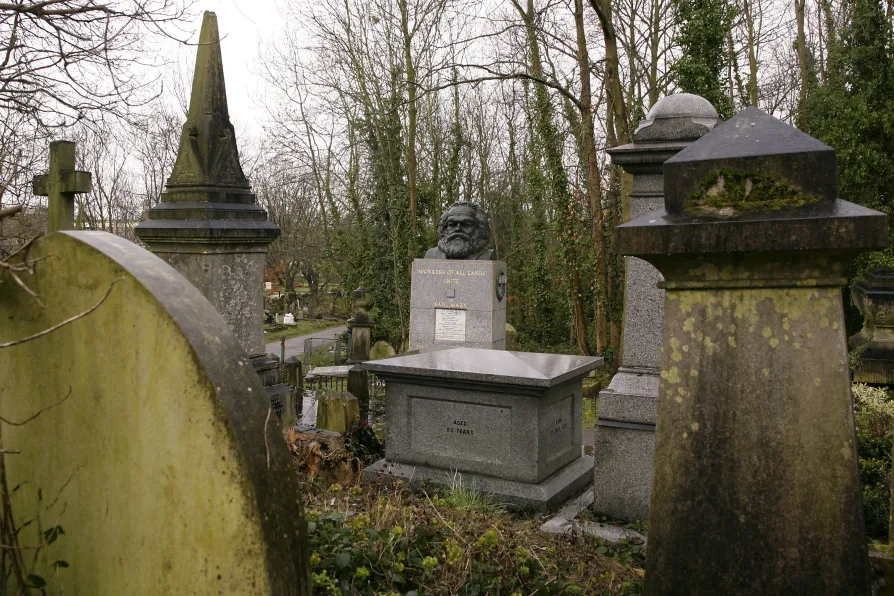The PM says Mandelson 'betrayed our values' – but ministers and advisers flock to line their pockets with corporate cash, says SOLOMON HUGHES

 A view of the grave of Karl Marx (1818-1883) in Highgate Cemetery East in Highgate, north London, March 15, 2009
A view of the grave of Karl Marx (1818-1883) in Highgate Cemetery East in Highgate, north London, March 15, 2009
WHEN Engels died in 1895, his ashes were scattered off Beachy Head close to what had been one of his favourite seaside towns, Eastbourne.
Marx, who died in 1883, had been buried in Highgate Cemetery in a modest grave but geographically appropriate for someone who had spent much of their life in north London.
A modest controversy has now arisen over plans to make more space for graves in the area around where Marx is buried.

The summer saw the co-founders of modern communism travelling from Ramsgate to Neuenahr to Scotland in search of good weather, good health and good newspapers in the reading rooms, writes KEITH FLETT

While Hardie, MacDonald and Wilson faced down war pressure from their own Establishment, today’s leadership appears to have forgotten that opposing imperial adventures has historically defined Labour’s moral authority, writes KEITH FLETT












